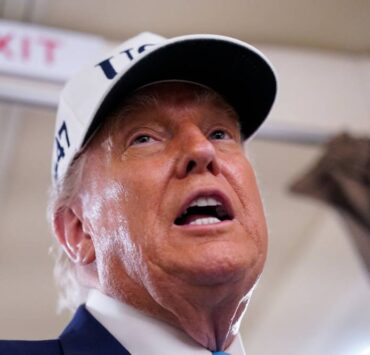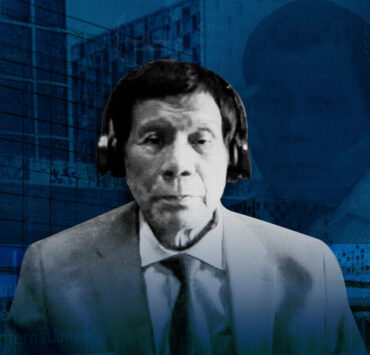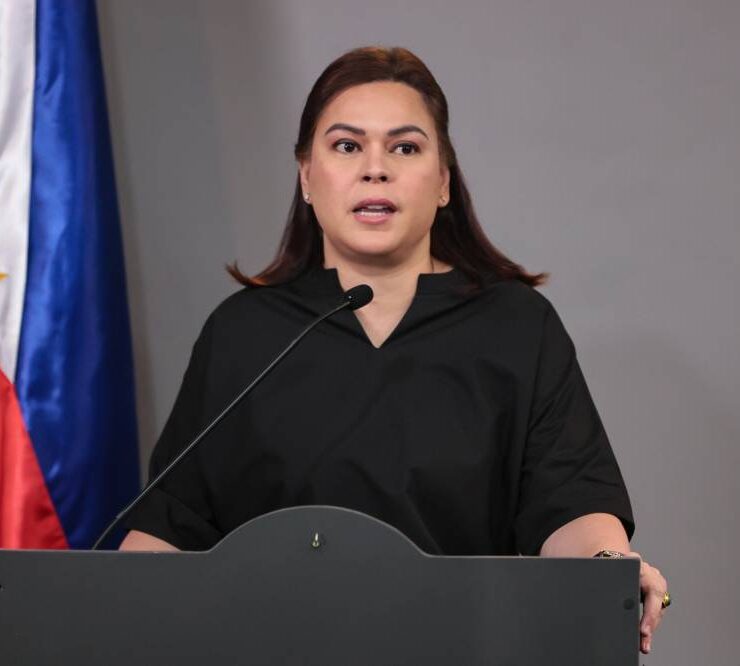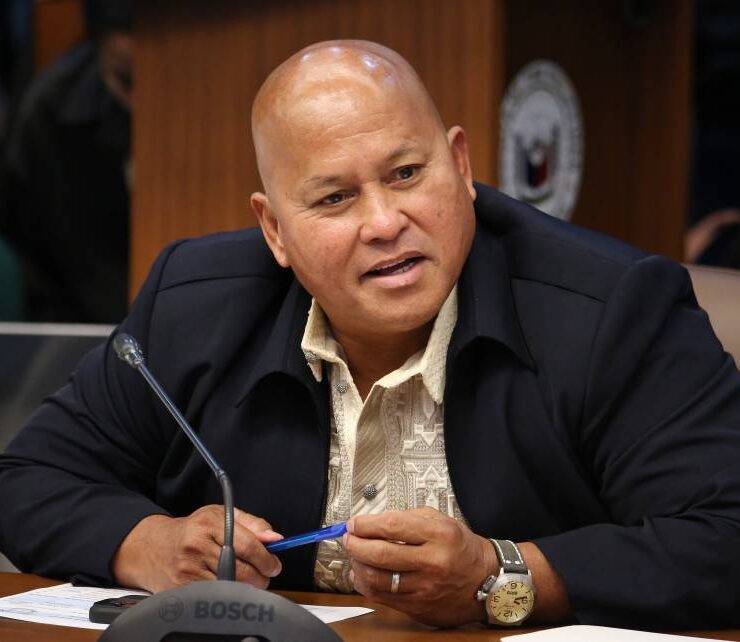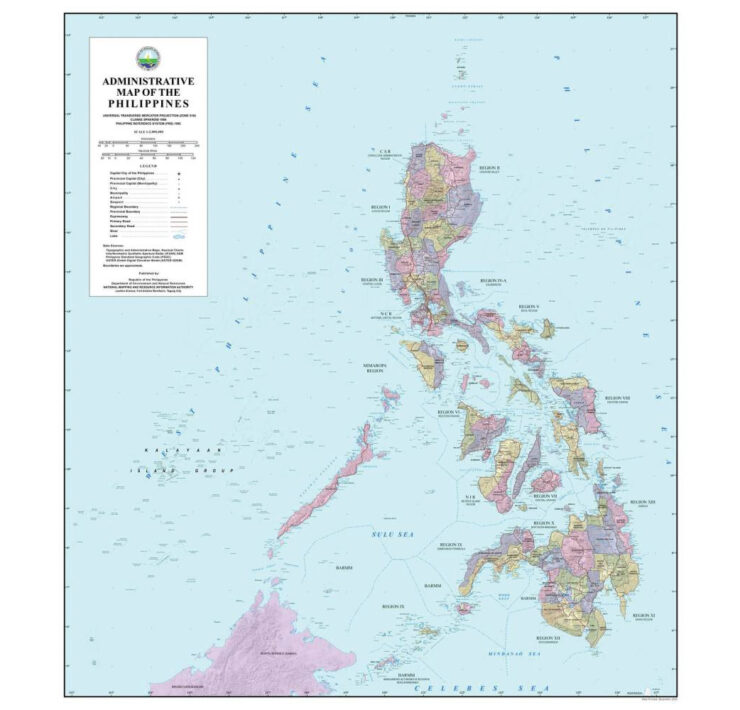Gov’t won’t suspend fuel tax, sticks to ‘ayuda’ for drivers, farmers
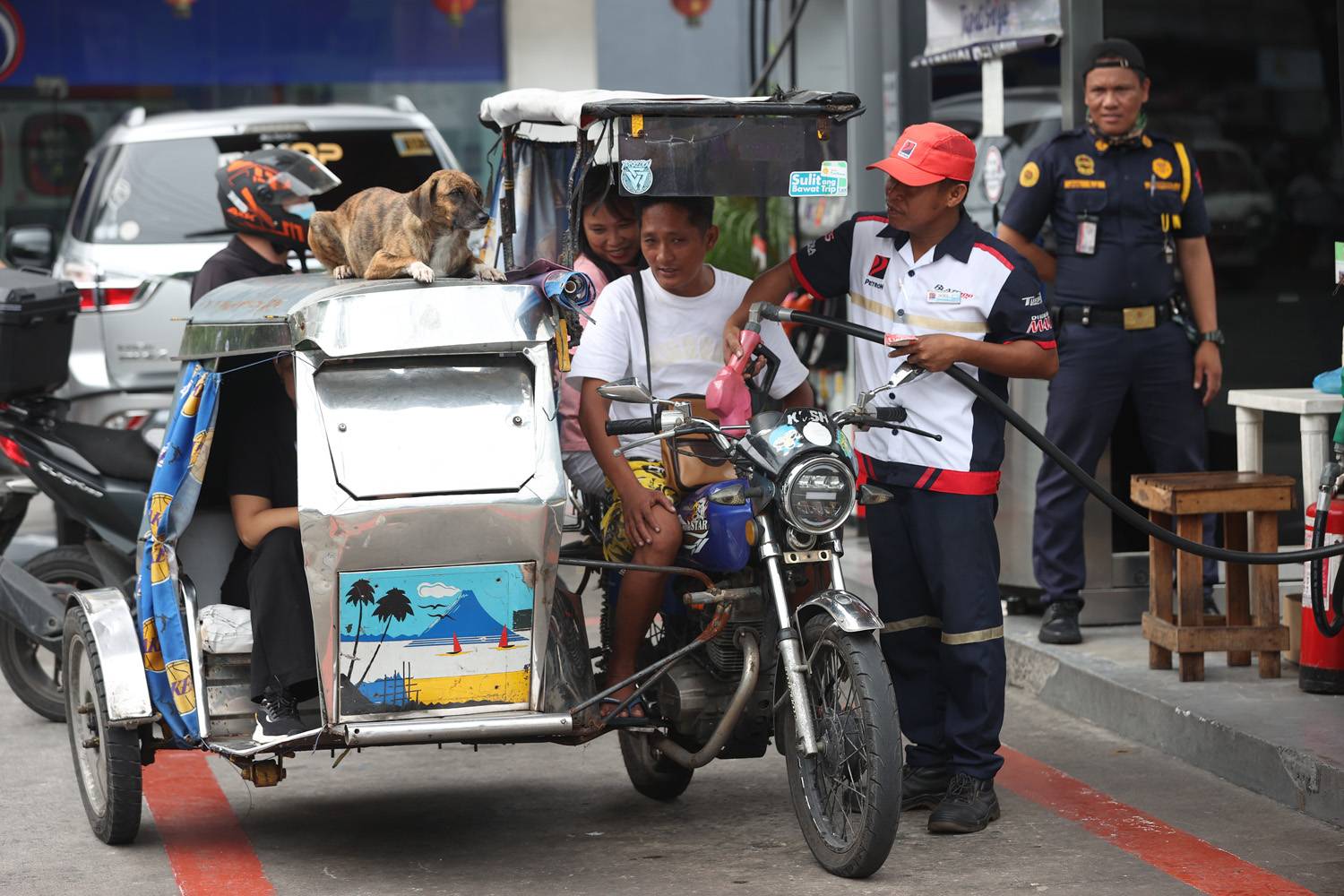
The Department of Energy (DOE) on Tuesday turned down calls from transport and agricultural groups to suspend the value-added tax (VAT) and excise on petroleum products to stem the surge in fuel prices caused by the Israel-Iran conflict, saying it cannot be done under existing laws.
At a press briefing in Malacañang, DOE Officer in Charge Sharon Garin said that while the economic team had discussed the proposal, any move to suspend, reduce, or abolish the taxes will require congressional action.
“Excise tax and VAT are imposed by law. Neither the DOE, the Department of Finance, nor even the President has the authority to suspend or remove them unilaterally,” she said. “We must follow what’s in the law.”
Suspending both the VAT and excise on fuel can significantly reduce prices, Garin said, but it would ultimately have an impact on public services because the government would be forgoing revenues estimated at P300 billion.
The amount could pay for roads, school buildings, and health services, she said.
“So we need to strike a balance—protect commuters and drivers, but also sustain basic public services,” she said.
Garin explained that Republic Act No. 10963, or the Tax Reform for Acceleration and Inclusion (TRAIN), allows the suspension only of fuel tax increases, not the taxes themselves, and that there is no recent increase to suspend.
The DOE is also not keen on seeking emergency powers from President Marcos in case of a drastic oil supply shortage, she said, as the current benchmark for triggering the fuel subsidy program of $80 per barrel has not been met.
“We’re not yet in that situation. We’re just preparing in case we reach that point,” Garin said.
Fuel subsidies
In the absence of a legal pathway to suspend fuel taxes, she said, the Marcos administration is turning to fuel subsidies (“ayuda”) as a more immediate form of relief.
“We believe the ayuda is a good start for now,” the official said, referring to the P2.5-billion subsidy fund for public utility vehicle (PUV) drivers and operators, and an additional P600 million for farmers and fisherfolk.
President Marcos has directed agencies to start preparations for the release of the funds to cushion vulnerable sectors—especially PUV drivers, farmers, and fisherfolk—from fuel price shocks.
“The DOTr (Department of Transportation) has already identified recipients and is now finalizing the list. They are ready to disburse anytime a go-signal is given,” Garin said.
The energy official said she could not yet give an exact amount per beneficiary or a timeline for the funds’ release, with the final list still being prepared by the DOTr and the Department of Agriculture.
Staggered increase
The DOTr clarified that drivers and operators of unconsolidated PUVs, or those not yet enrolled in the government’s Public Transport Modernization Program, will also receive fuel subsidies.
According to Garin, oil companies have agreed to implement any price increase on a staggered basis. This meant having two separate smaller adjustments instead of a single, bigger increase—P2.60 per liter on June 24 and another P2.60 on June 26.
“This gives Filipino families time to plan their fuel consumption for the week,” she said.
The DOE also urged oil companies to offer discounts to PUVs. Local player CleanFuel was the first to commit a P1-a-liter cut for public transport drivers, Garin reported.
She expressed optimism that the dip in global oil prices to $69 a barrel on Tuesday morning will offer a reprieve from further hikes due to the Middle East situation.
The drop from the “high $70s” just a day earlier was likely due to pronouncements by US President Donald Trump of a ceasefire between Iran and Israel, thus easing market speculation, Garin said.
“Today is a good day. The industry has calmed down, and speculation has lessened,” she said.
However, Reuters reported that Israeli Defense Minister Israel Katz on Tuesday ordered the military to mount new strikes on targets in Tehran in response to what he said were Iranian missiles fired in a “blatant violation” of the ceasefire.
Contingency measures
Still, Garin said, government agencies are drawing up contingency plans should the crisis worsen and a vital oil shipping route, the Strait of Hormuz, be blocked.
“All agencies are bracing for impact, even if it seems like there won’t be one,” she said.
Garin noted that Iran accounts for only 1.5 percent of the Organization of Petroleum Exporting Countries’ (Opec) export supply to global markets due to existing embargoes, and this mostly goes to China.
Other Opec members hold 5.5 million barrels in reserve, which can help fill any gap, she said.
Aside from Middle Eastern sources, the Philippines can turn to non-Opec countries such as the United States, Canada, and Brazil, Garin said.
She assured the public that the country has sufficient reserves for a month exceeding the 15-day buffer stock required for all oil companies operating in the country and that contingency plans are place for a worst-case scenario. —WITH A REPORT FROM JEROME ANING














